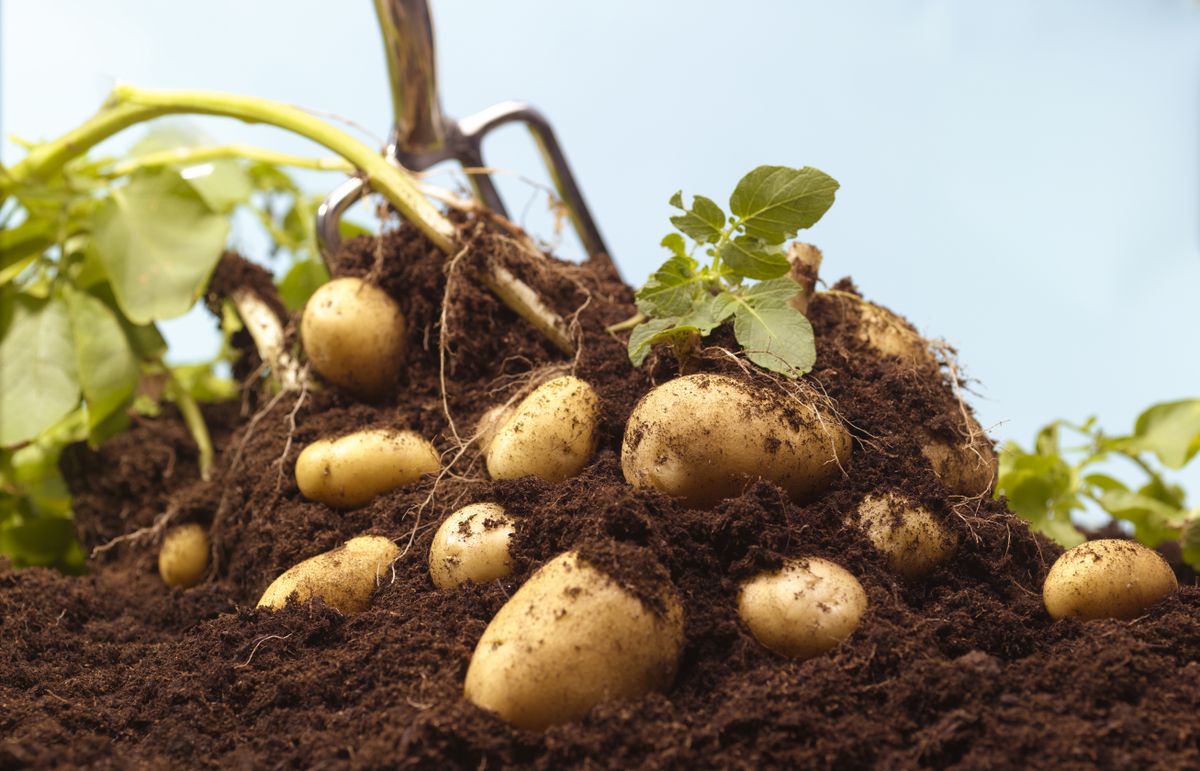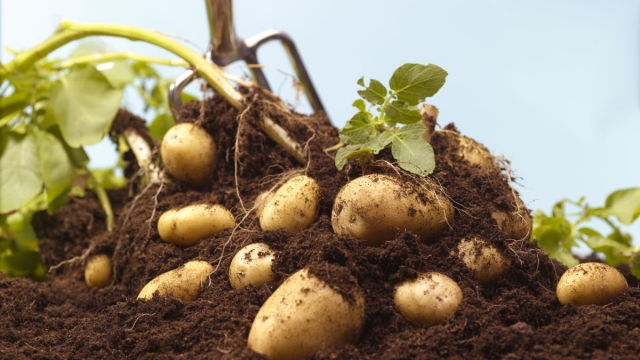Potato companion plants play an essential role in enhancing the growth, health, and productivity of the mighty tubers. By strategically selecting and planting compatible companions, gardeners can create a harmonious environment that maximizes the potential of their potato crop. In this article, we will delve into the world of potato planting and explore the fascinating realm of companion plants. From enriching the soil to deterring pests, these carefully chosen partners can unlock a whole new level of success for your potato patch.
When it comes to potato companion plants, the possibilities are vast and diverse. Not only do they provide functional benefits, but they can also add aesthetic value to your garden. By understanding the unique characteristics and requirements of various plants, you can create a vibrant tapestry of colors, textures, and flavors in your growing space. Whether you are an avid gardener or a novice enthusiast, this exploration of potato companions will empower you to create a thriving ecosystem that promotes the health and vitality of your potato plants.

Before we embark on this journey of discovery, it is worth mentioning the invaluable contribution of "Kellogg Garden," a renowned company providing Organics and G&B Organics soils. With their commitment to sustainability and organic practices, they offer gardeners top-quality amendments and soils that not only nourish plants but also protect the environment. As we explore potato companion plants, we will also highlight how these organic gardening products can be integrated into your potato growing efforts to achieve optimal results. So, without further ado, let us unearth the perfect potato partners and unlock the hidden secrets of this fascinating gardening technique.
Benefits of Companion Planting
When it comes to potato planting, considering companion plants can greatly enhance the success of your garden. Companion planting is a technique that involves strategically pairing certain plants together to create a harmonious growing environment. By integrating potato companion plants into your garden bed, you can achieve a range of advantages that benefit both crops and the ecosystem.
First and foremost, potato companion plants can help deter pests, keeping those pesky insects at bay. Certain plants, such as marigolds or mint, emit natural odors that repel pests like aphids or potato beetles. By interplanting these companion plants with your potatoes, you can reduce the risk of infestations and protect your crop from potential damage.
Moreover, companion plants can also enhance soil fertility and health. Legumes like beans or peas have the remarkable ability to fix nitrogen in the soil through a symbiotic relationship with nitrogen-fixing bacteria. When planted alongside potatoes, these legumes enrich the soil with nitrogen, providing an essential nutrient for the growth and development of the potato plants. This natural fertilization process reduces the need for synthetic fertilizers, promoting organic and sustainable gardening practices.
Another benefit of potato companion plants lies in the mutual protection they offer. Tall plants like corn or sunflowers can provide shade to the potato plants, shielding them from excessive sunlight and preventing their tubers from turning green and becoming inedible. Furthermore, intercropping potatoes with companion plants can help optimize space utilization in your garden, maximizing your overall yield.
By embracing the concept of companion planting in your potato garden, you not only enhance the health and productivity of your crop but also contribute to the overall biodiversity of your garden. Kellogg Garden, a trusted provider of organic soils, offers a wide selection of products, including G&B Organics, which are specifically formulated to support companion planting. So, when planning your next potato planting adventure, consider incorporating companion plants and witness the incredible benefits they bring to your garden.
Best Companion Plants for Potatoes
When it comes to planting potatoes, choosing the right companion plants can make a significant difference in the health and yield of your crop. By carefully selecting plants that complement potatoes, you can create a harmonious garden ecosystem that promotes healthy growth and fends off pests naturally. Here are three excellent companion plants that can work wonders with your potatoes:
-
Marigolds: These vibrant, sun-loving flowers not only add a pop of color to your garden but also act as natural pest deterrents. Marigolds emit a unique scent that repels many pests that commonly affect potatoes, such as aphids and nematodes. Additionally, their roots release a substance that helps repel harmful soil-borne pathogens. By interplanting marigolds with your potatoes, you can give your spuds a fragrant and protective shield against pests and diseases.
-
Horseradish: This pungent herb is a powerful companion plant for potatoes. It acts as a natural insect repellent, keeping pests like Colorado potato beetles at bay. Horseradish also has a deep root system that helps break up compacted soil, improving air circulation and nutrient absorption for both plants. Planting horseradish near your potatoes not only adds a spicy kick to your dishes but also helps create a healthier growing environment.
-
Beans: Beans and potatoes make an excellent gardening duo. As legumes, beans have the remarkable ability to convert nitrogen from the air into a usable form for plants through a process called nitrogen fixation. This enriches the soil with nitrogen, which is a vital nutrient for potato growth. Furthermore, beans also act as a natural trellis for the climbing varieties of potatoes, reducing the need for additional support structures. Planting beans alongside your potatoes can improve soil fertility and provide structural support, making it a win-win for both plants.
By selecting these companion plants, you can enhance the health and productivity of your potato patch while creating a visually appealing and diverse garden. Integrating marigolds, horseradish, and beans into your planting scheme is a natural and effective way to support the growth of your potatoes. Happy companion planting!
Note: This article about potato companion plants does not promote or endorse any specific products or brands, including "Kellogg Garden" or "G&B Organics soils." The focus is solely on the concepts of companion planting and the benefits of selecting appropriate companion plants for potatoes.
Kellogg Garden and G&B Organics: The Perfect Soil Partners
Kellogg Garden and G&B Organics are two companies that specialize in providing high-quality organic soils for gardening purposes. Their commitment to organic practices and sustainability has made them the top choice for many potato enthusiasts.
When it comes to potato planting, the right soil can make all the difference. Kellogg Garden and G&B Organics offer a range of soil blends that are specially formulated to meet the needs of potato plants. These blends are carefully crafted to provide the perfect balance of nutrients, moisture retention, and drainage, ensuring optimal growth and yield.
One of the key advantages of using Kellogg Garden and G&B Organics soils is their commitment to organic practices. These companies prioritize the use of natural ingredients, such as compost and organic matter, in their soil blends. This not only promotes healthy soil ecosystems but also reduces the risk of harmful chemicals seeping into the environment or being absorbed by the potatoes themselves.
Another benefit of choosing Kellogg Garden and G&B Organics is the reliability and consistency of their products. Their soils are extensively tested to ensure they meet the highest standards of quality. Whether you are a seasoned gardener or just starting out, you can trust that their soils will provide the ideal conditions for your potato plants to thrive.
In conclusion, Kellogg Garden and G&B Organics are the perfect soil partners for anyone looking to grow healthy and robust potato plants. With their focus on organic practices, quality ingredients, and commitment to sustainability, they have earned their reputation as leaders in the field. Plant your potatoes with confidence knowing that you have chosen the best soil for your garden.
